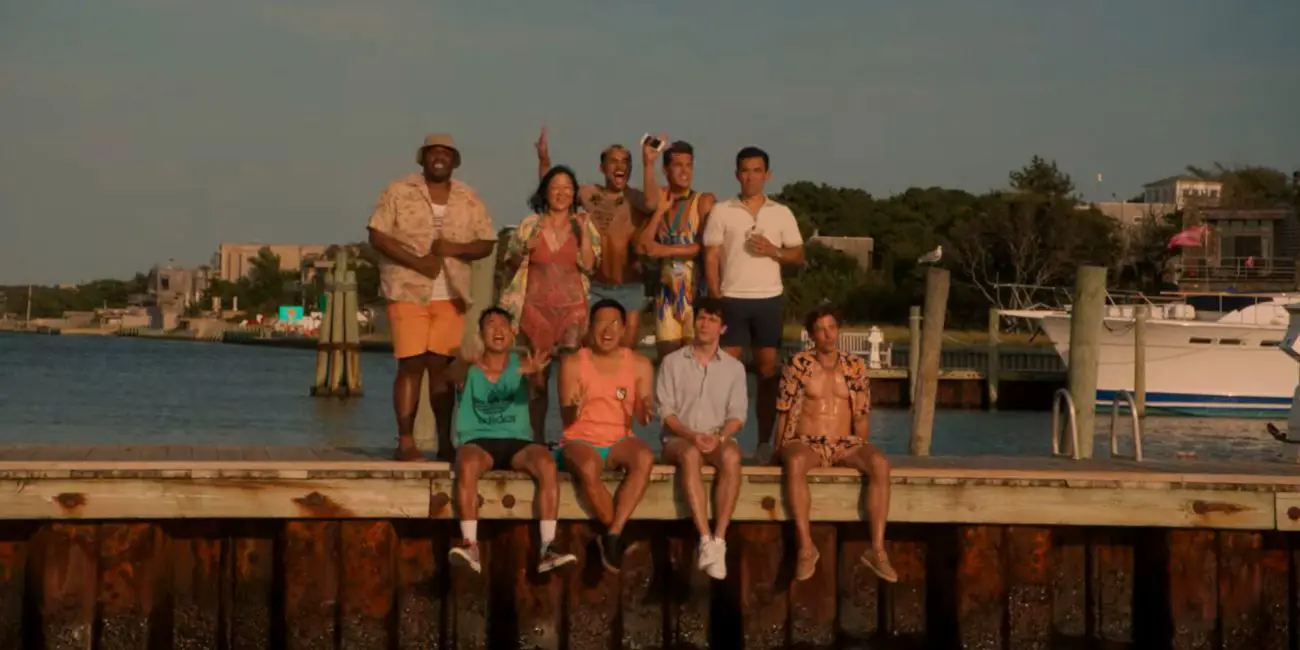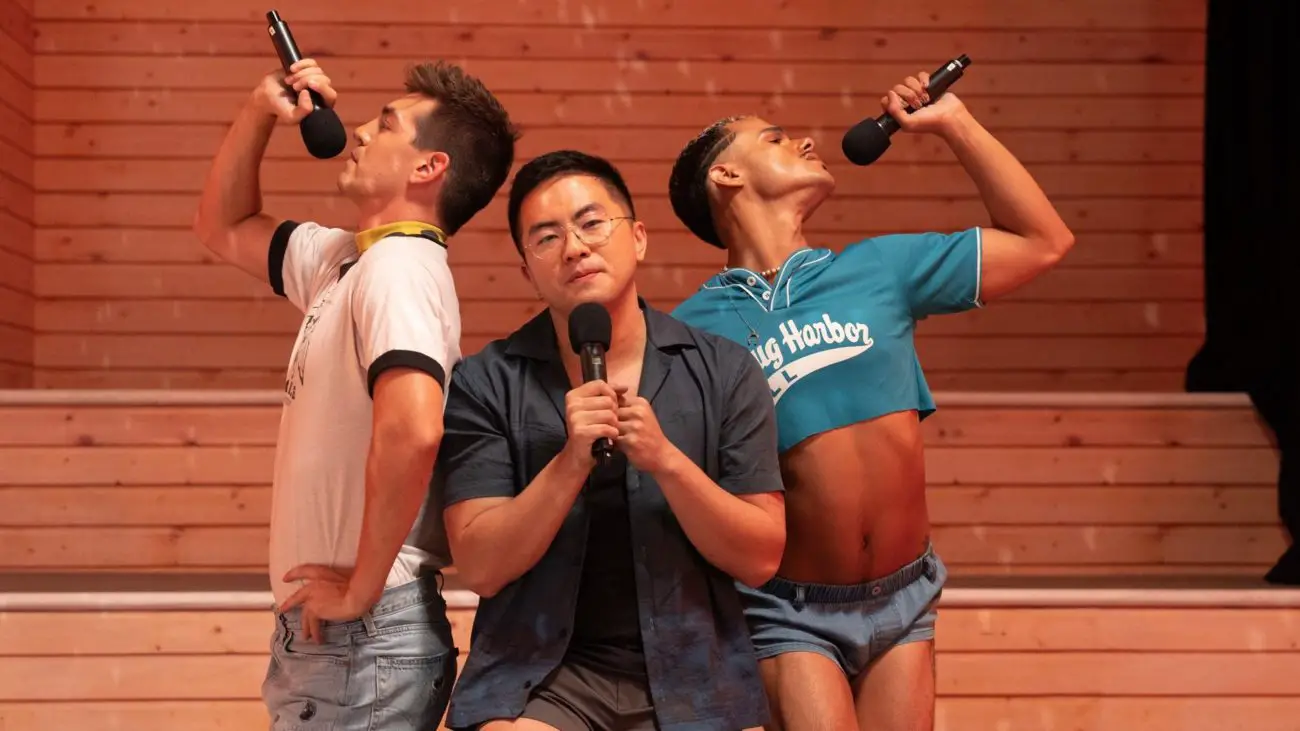Joel Kim Booster wrote and stars in Fire Island, a Pride and Prejudice retelling in the form of a romantic comedy about a group of friends and their annual week-long vacation at Fire Island Pines. Noah (Booster), Howie (Bowen Yang), Luke (Matt Rogers), Keegan (Tomas Matos), and Max (Torian Miller) make the pilgrimage every year to what has been known as the best spot for LGBT beachgoers since the 1920s. The friends met while working at a restaurant in Brooklyn, and stay at the island home of Erin (Margaret Cho), who also worked at the restaurant. While they no longer work together or see each other as often as they’d like, the annual trip to Fire Island is their time to reconnect, party, and enjoy each other’s company.
Erin’s revelation that she’s not doing well financially and will have to sell the house puts a damper on the festivities this year. It’s heartbreaking for the group because Erin has been a mother figure to them and her home was a safe place they knew they could count on. It’s the end of an era, and they decide to spend their last week at the beach making memories. Noah agrees to be Howie’s wingman for the week after Noah catches Charlie (James Scully) checking Howie out. Noah’s group and Charlie’s group become intertwined, and the relaxing vacation becomes more dramatic than any of them had anticipated.
The problem with Fire Island is that it lost the essence of a Jane Austen novel. All of Austen’s works are critiques on the society she was living in. Whether she focused on marriage, social class, politics, religion, or a multitude of similar themes, Austen’s books were more than simple romantic stories. Fire Island attempts to follow in her footsteps and alludes to the racism and body-shaming that are prevalent in the gay male community, but there is no depth to any of the conversations. That’s disappointing, because Austen’s works have proven adaptable to many different times and groups of people. Pride and Prejudice is the perfect canvas for this story, but the film didn’t manage to reach the highs of the original work.

Noah, unfortunately, lacks the essence of a Jane Austen heroine. For most of the movie, he’s insufferable and rude to his so-called friends. These friends are so close that they consider each other family, but there’s no feeling of warmth between them. They’re supposed to be representative of the Bennett sisters, but there’s no love to be seen and their bickering feels stilted and unnatural. Their friendship is supposed to be the glue that holds the film together, but it feels like they all just met an hour-and-a-half ago.
Noah and Will are Fire Island’s Elizabeth and Mr. Darcy. Of course, Noah and Will start off not liking each other, but their bickering feels uncomfortable. Perhaps it’s the lack of chemistry between the actors, or the fact that their romantic relationship is shown suddenly in montages. Whatever it may be, the audience is robbed of the quintessential experience of a Jane Austen adaptation. There is no swoon-worthy yearning on sun-drenched beaches or in neon nightclubs. Instead, the film feels more akin to a first draft. There are many interesting concepts and characters at play, but there’s more work to be done before the script is complete.

The film ends abruptly and the fate of Erin’s character remains unknown. As much as the film tries to say that she’s the mother figure of the group, she’s really only treated as relevant because she owns the house on the island. Noah and his friends assure her that they love her, not the house, but that’s difficult to believe when she’s excluded from most of the film. However, the implication that Erin’s character once had a similar group of friends who met for rambunctious vacations in Cherry Grove (the lesbian Fire Island) makes me desperate for a prequel.
There is something comforting in seeing an LGBT film without a coming out story and with a big rom-com finale. The choice to include Victorian string music for a few moments in the score was terrific and should have been carried throughout the film. In the same way it’s exciting when period pieces use modern music, flipping that concept on its head and only scoring Fire Island with Austen-era orchestrations would have been delightful. Noah contributes a running narration throughout the film that feels too simplistic. It was charming at first to hear the famous opening lines of Pride and Prejudice coming from Noah, but it’s a charm that quickly loses steam. Narration is used as a means of telling the audience how he’s feeling instead of allowing them to see it for themselves.
Given the proximity of their release dates, their presence on the same streaming service, and their shared desire to broaden the genre of LGBT movies, it’s hard not to compare Crush and Fire Island. Both set out to give queer individuals a fun, breezy, romantic comedy where a happy ending is guaranteed. While both can be critiqued as being too cliché, these movies showing unabashed queer joy are still radical. Fire Island just doesn’t quite stick the landing.



